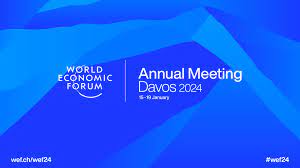Leadership
Celebrating 147th Birthday of The Great Leader : Quaid-e-Azam Mohammad Ali Jinnah

Quaid-e-Azam Mohammad Ali Jinnah, also known as the Father of the Nation, was born on December 25, 1876, in Karachi, British India. He was a prominent lawyer, politician, and statesman who played a pivotal role in the creation of Pakistan, the world’s first Islamic republic. This article will provide a detailed biography of Quaid-e-Azam Mohammad Ali Jinnah, focusing on his early life and education, political career, role in the creation of Pakistan, personal life, and legacy.
Early Life and Education
Jinnah was born into a wealthy family of Muslims. His father, Jinnah bhai Poonja, was a successful merchant, and his mother, Mithibai, was a devout Muslim. Jinnah was the eldest of seven siblings, and he received his early education at the Sindh-Madrasa-tul-Islam in Karachi. Later, he attended the Christian Missionary Society High School in Karachi, where he excelled in academics and sports.In 1892, Jinnah travelled to London to study law at Lincoln’s Inn. He completed his studies in 1896 and returned to Karachi to start his legal practice. Jinnah’s legal career was highly successful, and he soon became one of the most prominent lawyers in Bombay.

Political Career
Jinnah’s political career began in 1906 when he joined the Indian National Congress, a political party that aimed to secure India’s independence from British rule. However, Jinnah soon became disillusioned with the Congress’s policies, which he believed favoured Hindus over Muslims. In 1913, he joined the All India Muslim League, a political party that aimed to protect the rights of Muslims in India.
Jinnah’s political career reached its peak in the 1940s when he led the Muslim League’s demand for a separate Muslim state in India. He argued that Muslims could not live under Hindu domination and that a separate state was necessary to protect their rights. Jinnah’s demand for a separate state was initially met with opposition from both the British government and the Indian National Congress. However, his persistence and political acumen eventually led to the creation of Pakistan in 1947.
Role in the Creation of Pakistan
Jinnah’s role in the creation of Pakistan was pivotal. He led the Muslim League’s negotiations with the British government and the Indian National Congress, and his leadership and political acumen were instrumental in securing a separate Muslim state. On August 14, 1947, Pakistan was created, and Jinnah became its first Governor-General.
Personal Life and Legacy
Jinnah was a private person who kept his personal life separate from his public persona. He married his second wife, Rattanbai Petit, in 1918, and they had one daughter, Dina. However, their marriage was short-lived, and Rattanbai died in 1929. Jinnah never remarried and remained devoted to his daughter until his death. Jinnah’s legacy is immense. He is revered as the Father of the Nation in Pakistan, and his vision of a separate Muslim state continues to shape the country’s politics and identity. Jinnah’s commitment to democracy, secularism, and the rule of law remains an inspiration to people around the world.
Conclusion
Quaid-e-Azam Mohammad Ali Jinnah was a remarkable leader who played a pivotal role in the creation of Pakistan. His early life and education, political career, role in the creation of Pakistan, personal life, and legacy are all testaments to his greatness. Jinnah’s vision of a separate Muslim state continues to shape Pakistan’s politics and identity, and his commitment to democracy, secularism, and the rule of law remains an inspiration to people around the world.
Leadership
Leadership Solutions for Muslim Ummah: Raising a Strong Voice Against Islamophobia and Gaza

The current state of the Muslim ummah is concerning and demands urgent attention. A leadership crisis has resulted in a dearth of bold and empathetic leaders who can effectively tackle issues such as Islamophobia and the ongoing crisis in Gaza. The lack of such leadership has contributed to the marginalization of Muslims in several regions of the world, including the West. It is imperative that we identify and support leaders who can represent the ummah with integrity and courage, and work towards creating a more just and inclusive world for Muslims.

One of the key challenges facing the Muslim ummah is the rise of Islamophobia. Muslims are often portrayed negatively in the media, and this has led to a rise in hate crimes against them. To combat this, the Muslim ummah needs leaders who are willing to speak out against Islamophobia and work towards creating a more tolerant and inclusive society.
Another challenge facing the Muslim ummah is the ongoing crisis in Gaza. The people of Gaza are facing immense hardship, and the international community has largely failed to address their plight. The Muslim ummah needs leaders who are willing to raise their voices and demand action to end the suffering of the people of Gaza. It is only through strong and brave leadership that the Muslim ummah can hope to overcome these challenges and fulfil its potential as a global community.
Table of Contents
Understanding the Leadership Crisis in Muslim Ummah

The Muslim Ummah is facing a leadership crisis, with a lack of strong and brave leaders who can raise their voices against Islamophobia and the ongoing conflict in Gaza. This crisis has been brewing for some time, with many Muslims feeling that their leaders are not doing enough to protect their interests and stand up for their rights.
One of the major reasons for this crisis is a lack of unity among the Muslim Ummah. There are many different sects and factions within the Muslim community, each with their own leaders and agendas. This has led to infighting and division, making it difficult to present a united front against common challenges.
Another factor contributing to the leadership crisis is a lack of education and training for Muslim leaders. Many Muslim leaders are not properly trained in leadership skills or Islamic teachings, making it difficult for them to effectively lead their communities. This has led to a situation where many Muslim communities are left without strong and effective leaders who can guide them through difficult times.
To address this crisis, it is important to focus on developing strong and effective leaders who can unite the Muslim Ummah and stand up for their rights. This can be achieved through education and training programs that focus on leadership skills and Islamic teachings. It is also important to encourage greater unity and collaboration among Muslim leaders, so that they can work together to address common challenges and present a united front against Islamophobia and other forms of discrimination.
Overall, the leadership crisis in the Muslim Ummah is a complex and multifaceted issue that requires a comprehensive and coordinated response. By developing strong and effective leaders who can unite the Muslim community and stand up for their rights, we can begin to address this crisis and build a brighter future for the Muslim Ummah.
Strategies for Cultivating Brave Leadership

To fulfil the leadership crisis in Muslim Umah, it is essential to cultivate brave leadership that can raise a strong voice against Islamophobia and the Gaza situation. Here are some strategies that can help in cultivating brave leadership:
1. Encourage Critical Thinking
One of the most important strategies for cultivating brave leadership is to encourage critical thinking. Leaders who can think critically are more likely to take calculated risks and make informed decisions. Encouraging critical thinking can be done by providing opportunities for leaders to engage in debates, discussions, and problem-solving activities.
2. Develop Communication Skills
Communication is a key aspect of leadership. Leaders who can communicate effectively are more likely to inspire others and gain support for their cause. Developing communication skills can be done by providing training in public speaking, writing, and interpersonal communication.
3. Foster Resilience
Resilience is the ability to bounce back from setbacks and challenges. Leaders who are resilient are more likely to stay focused and committed to their goals even in the face of adversity. Fostering resilience can be done by providing opportunities for leaders to face challenges and learn from their failures.
4. Promote Diversity and Inclusion
Leaders who promote diversity and inclusion are more likely to gain support from a wider range of people. Promoting diversity and inclusion can be done by creating opportunities for leaders from different backgrounds to work together and learn from each other.
By implementing these strategies, it is possible to cultivate brave leadership that can raise a strong voice against Islamophobia and the Gaza situation.
Combating Islamophobia Through Influential Advocacy

In order to fulfill the leadership crisis in the Muslim Umah, it is important to combat Islamophobia through influential advocacy. This involves raising awareness about the negative effects of Islamophobia and advocating for change at the local and national levels.
One effective way to combat Islamophobia is by promoting interfaith dialogue and cooperation. This can help to break down barriers and promote understanding between different communities. It is also important to engage with the media and challenge negative stereotypes and misrepresentations of Islam and Muslims.
Another important aspect of influential advocacy is to empower Muslim leaders and provide them with the tools and resources they need to be effective advocates. This includes training on public speaking and media engagement, as well as access to networks and platforms that can amplify their voices.
Overall, combating Islamophobia through influential advocacy requires a multifaceted approach that involves engaging with a range of stakeholders, including government officials, media outlets, and civil society organizations. By working together, it is possible to create a more inclusive and tolerant society that respects the rights and dignity of all people, regardless of their faith or background.
Supporting Gaza: A Blueprint for Muslim Leaders

The situation in Gaza is a pressing concern for Muslim leaders worldwide. They need to take a proactive approach to support the people of Gaza and raise a strong voice against Islamophobia. Here are some actionable steps that Muslim leaders can take to support Gaza:
1. Provide Humanitarian Aid
Humanitarian aid is crucial for the survival of the people of Gaza. Muslim leaders can work with international aid organizations to provide food, medicine, and other essential supplies to the people of Gaza. They can also provide financial assistance to rebuild the infrastructure that has been destroyed by the ongoing conflict.
2. Advocate for Peaceful Resolution
Muslim leaders can use their influence to advocate for a peaceful resolution to the conflict in Gaza. They can work with international organizations and other world leaders to promote dialogue and negotiations between the parties involved in the conflict.
3. Raise Awareness
Muslim leaders can use their platform to raise awareness about the situation in Gaza. They can organize events, conferences, and seminars to educate people about the ongoing conflict and the impact it has on the people of Gaza. They can also use social media and other communication channels to spread awareness and encourage people to take action.
4. Support Political Solutions
Muslim leaders can support political solutions to the conflict in Gaza. They can work with other world leaders to promote a two-state solution and advocate for the creation of an independent Palestinian state. They can also support efforts to end the blockade of Gaza and ensure that the people of Gaza have access to basic human rights.
In conclusion, Muslim leaders have a crucial role to play in supporting the people of Gaza and raising a strong voice against Islamophobia. By providing humanitarian aid, advocating for peaceful resolutions, raising awareness, and supporting political solutions, Muslim leaders can make a significant impact on the situation in Gaza.
Leadership
Breaking Barriers: Empowering Women in Cybersecurity and IT

Introduction
International Women’s Day 2024 marks a pivotal moment in the tech industry, particularly in cybersecurity and information technology. Despite progress, the underrepresentation of women in these fields remains a pressing issue. In this blog article, we delve into the insights shared by Siroui Mushegian, CIO at Barracuda Networks, on the root causes of this gender gap and strategies to create a more inclusive environment for female talent.
The Gender Gap in Technology: Understanding the Challenges
In male-dominated sectors like technology and cybersecurity, women face numerous challenges that contribute to their underrepresentation. Factors such as unconscious bias, lack of role models, and workplace culture play significant roles in perpetuating this gap.
Root Causes of Underrepresentation
Siroui Mushegian sheds light on the root causes of women’s underrepresentation in cybersecurity and IT. These include societal stereotypes, educational barriers, and a lack of support networks for women entering these fields. Addressing these fundamental issues is crucial to fostering gender diversity.
Fostering Inclusivity: Strategies for Change
To champion female talent in cybersecurity and IT, proactive measures are essential. Encouraging early exposure to technology, providing mentorship opportunities, promoting diversity in leadership roles, and creating supportive work environments are key strategies to empower women in these industries.
The Role of Leadership in Driving Change
Leadership plays a pivotal role in driving diversity and inclusion initiatives within organizations. By advocating for gender equality, implementing inclusive hiring practices, and fostering a culture of respect and empowerment, leaders can create a more welcoming environment for women in cybersecurity and IT.
Building Support Networks: Empowering Women in Tech
Support networks are invaluable for women navigating male-dominated industries. Establishing mentorship programs, networking events, and affinity groups can provide women with the resources and connections needed to thrive in cybersecurity and IT roles.
Celebrating Success Stories: Inspiring the Next Generation
Highlighting success stories of women in technology can inspire the next generation of female talent. By showcasing diverse role models who have excelled in cybersecurity and IT, we can challenge stereotypes and encourage more women to pursue careers in these fields.
Conclusion: Empowering Women for a Brighter Future
As we commemorate International Women’s Day 2024, we reaffirm our commitment to championing female talent in cybersecurity and information technology. By addressing the root causes of underrepresentation, fostering inclusivity through strategic initiatives, empowering women through support networks, and celebrating success stories, we can create a more diverse and inclusive tech industry for future generations.
AI
World Economic Forum Annual Meeting Davos 2024: Challenges, Themes, and Resolutions for Economic Development in the Age of AI

Table of Contents
Introduction
The World Economic Forum Annual Meeting 2024 is a significant event that brings together leaders from various fields to discuss and address the most pressing issues facing the world today. The meeting, which is scheduled to take place from January 15th to 19th, 2024, in Davos-Klosters, Switzerland, will focus on four key themes: Achieving Security and Cooperation in a Fractured World, Creating Growth and Jobs for a New Era, Artificial Intelligence as a Driving Force for the Economy and Society, and A Long-Term Strategy for Climate, Nature, and Energy.
The World Economic Forum Annual Meeting 2024 is a highly anticipated event that will bring together leaders from around the world to discuss and address the most pressing issues facing the global economy. The meeting will focus on four key themes, including the role of artificial intelligence in driving economic growth and development.
Challenges
The current state of the world is rife with challenges that pose a significant threat to economic growth and development. Geopolitical instability, climate change, and technological change are some of the major challenges that are being faced. One of the most rapidly advancing technological changes is the rise of artificial intelligence (AI), which has the potential to disrupt industries and create new challenges for policymakers and business leaders alike. As AI continues to evolve, it will be crucial for individuals and organizations to adapt and stay abreast of the latest developments in order to remain competitive and navigate the challenges of the future.

Themes
The World Economic Forum Annual Meeting 2024 will focus on four key themes that are critical to addressing the challenges facing the global economy. These themes include:
Achieving Security and Cooperation in a Fractured World
The upcoming meeting has a major theme that revolves around the need for greater security and cooperation in a world that is becoming increasingly fragmented. The theme will delve into the challenges that the global community is facing, such as geopolitical tensions, terrorism, and cyber threats. The discussion will aim at finding solutions to these issues and exploring ways to foster greater collaboration among nations. This will help ensure that we can all live in a safer and more stable world.
Creating Growth and Jobs for a New Era
The second theme of the meeting highlights the need to foster new opportunities for growth and job creation in the global economy. This is a critical aspect that needs to be addressed to tackle the challenges faced by the global workforce, particularly in light of the impact of automation. The discussions will also delve into the need for new skills and training to ensure that the workforce remains equipped to handle the changing needs of the industry. By exploring these issues, the meeting aims to identify actionable steps that can be taken to promote inclusive and sustainable economic development on a global scale.
Artificial Intelligence as a Driving Force for the Economy and Society
The third theme of the meeting is set to delve into the subject of artificial intelligence and its role in driving economic growth and development. The discussion will centre on exploring the potential of AI to revolutionize various industries and open new doors for innovation and growth. With the rapid advancements in AI technology, this is a topic of great interest to many, as it could lead to significant progress and advancements in various sectors. The discussion will seek to uncover the possibilities and potential applications of AI in driving economic growth and development.
A Long-Term Strategy for Climate, Nature, and Energy
During the upcoming meeting, the fourth and final theme will be centred around the pressing need for a long-term strategy to tackle the challenges of climate change, biodiversity loss, and energy transition. This theme will delve deeper into the various challenges that the world is currently facing, highlighting the importance of developing new technologies and policies to effectively address these critical issues. The discussion is expected to be insightful, providing valuable insights into potential solutions and strategies that can be implemented to mitigate the negative impact of these challenges on the world.
Resolves
The World Economic Forum Annual Meeting 2024 will provide an opportunity for leaders from around the world to come together and develop new strategies for addressing the challenges facing the global economy. The meeting will focus on developing new policies and initiatives that can help to promote economic growth and development, while also addressing the challenges of climate change, geopolitical instability, and the rise of artificial intelligence.
Conclusion
The World Economic Forum Annual Meeting 2024 is a critical event that will bring together leaders from around the world to address the most pressing issues facing the global economy. The meeting will focus on four key themes, including the role of artificial intelligence in driving economic growth and development. By working together, leaders from around the world can develop new strategies and initiatives that can help to promote economic growth and development, while also addressing the challenges of climate change, geopolitical instability, and the rapid pace of technological change.
FAQs
Q: When and where is the World Economic Forum Annual Meeting 2024 taking place?
A: The World Economic Forum Annual Meeting 2024 is scheduled to take place from January 15th to 19th, 2024, in Davos-Klosters, Switzerland.
Q: What are the themes of the World Economic Forum Annual Meeting 2024?
A: The meeting will focus on four key themes: Achieving Security and Cooperation in a Fractured World, Creating Growth and Jobs for a New Era, Artificial Intelligence as a Driving Force for the Economy and Society, and A Long-Term Strategy for Climate, Nature, and Energy.
Q: What are the challenges facing the global economy?
A: The world is currently facing several challenges that threaten economic growth and development. These challenges include geopolitical instability, climate change, and the rapid pace of technological change. The rise of artificial intelligence, in particular, has the potential to disrupt industries and create new challenges for policymakers and business leaders alike.
Q: What are the resolves of the World Economic Forum Annual Meeting 2024?
A: The meeting will focus on developing new policies and initiatives that can help to promote economic growth and development, while also addressing the challenges of climate change, geopolitical instability, and the rise of artificial intelligence.
Q: Who will attend the World Economic Forum Annual Meeting 2024?
A: More than 300 public figures, including more than 60 heads of state and government, will attend the meeting.
-

 Featured3 years ago
Featured3 years agoThe Right-Wing Politics in United States & The Capitol Hill Mayhem
-

 Elections 20242 months ago
Elections 20242 months agoAnalyzing Trump’s Super Tuesday Triumph and Nikki Haley’s Strategic Moves
-

 News2 years ago
News2 years agoPrioritizing health & education most effective way to improve socio-economic status: President
-

 China3 years ago
China3 years agoCoronavirus Pandemic and Global Response
-

 Canada3 years ago
Canada3 years agoSocio-Economic Implications of Canadian Border Closure With U.S
-

 Conflict3 years ago
Conflict3 years agoKashmir Lockdown, UNGA & Thereafter
-

 Democracy3 years ago
Democracy3 years agoMissing You! SPSC
-

 Democracy3 years ago
Democracy3 years agoPresident Dr Arif Alvi Confers Civil Awards on Independence Day























